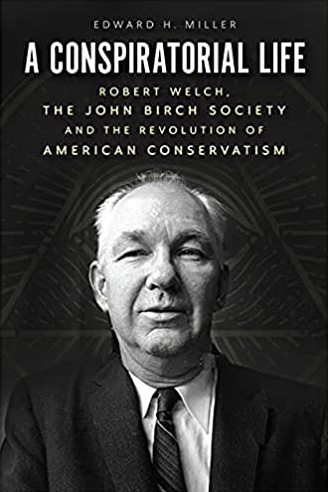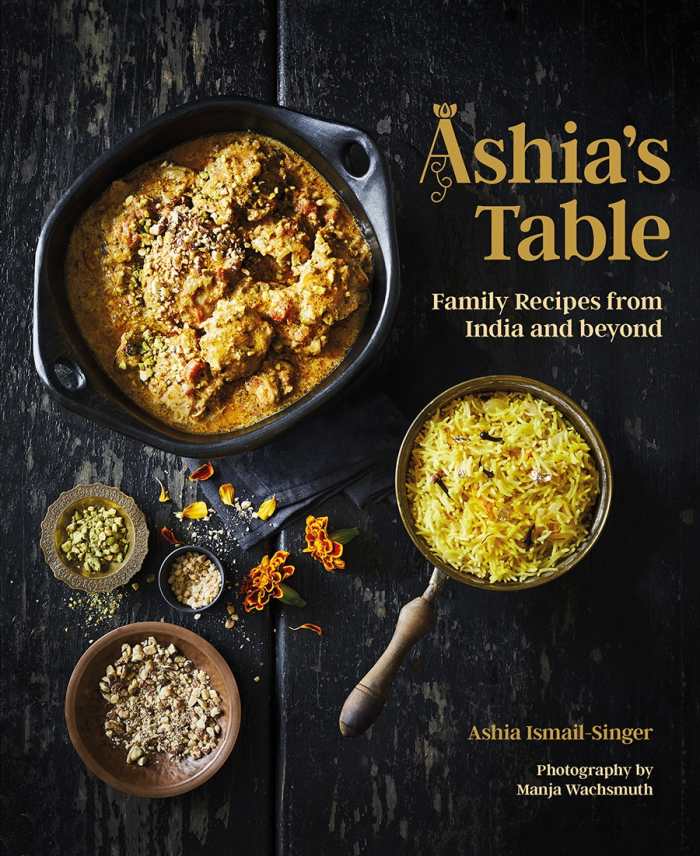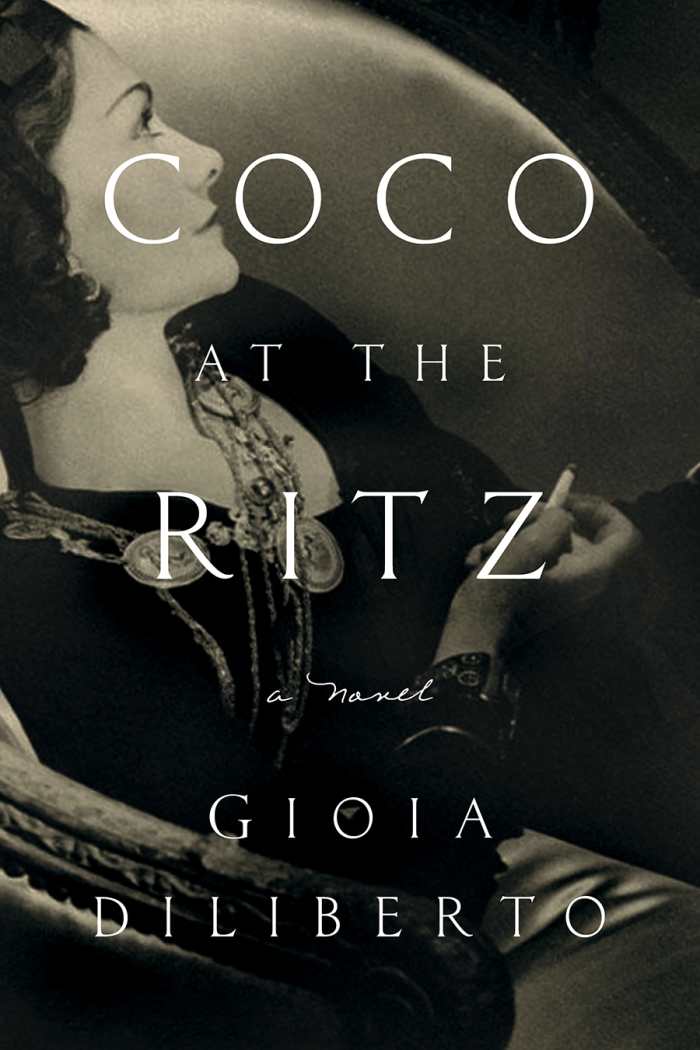Book of the Day Roundup: December 6-10, 2021
A Conspiratorial Life
Robert Welch, the John Birch Society, and the Revolution of American Conservatism

Edward H. Miller
University of Chicago Press
Hardcover $30.00 (464pp)
978-0-226-44886-2
The origins of the conspiracy theories that permeate modern American politics are revealed in Edward H. Miller’s biography of Robert Welch, A Conspiratorial Life.
Born into a family of North Carolina farmers who fought in the American Revolution, owned slaves, believed in white supremacy, supported the confederacy, disliked Yankees, and distrusted the federal government, Robert Welch made his fortune as a candy manufacturer with the purpose of supporting himself as a political writer. Hypervigilant to conspiracy theories, he found a personal outlet in the death of John Birch, an American military intelligence officer who died during World War II. He founded an anticommunist organization, The John Birch Society, to peddle his theories among American conservatives.
Welch first became known to mainstream Americans in 1964, when his accusation that former President Dwight D. Eisenhower was a communist was quoted on the floor of the United States Senate. But by then, he was already an established figure on the right. Still, just a few years later, he was excommunicated from conservative movements, and the Society lost all of its influence. He continued his work from the sidelines, influencing conservative political opinions throughout the 1970s and paving the way for the normalization of conspiracy theories of recent years.
Miller investigates the origins and survival of The John Birch Society, as well as the influence of the Society and Welch on modern American conservatism. His work is based on Welch’s personal papers, but also muses on how he might have experienced his childhood, or agreed with anti-immigrant rhetoric. Welch’s white supremacy is addressed in direct terms, though the book’s discussions of his antisemitism are less clear.
A Conspiratorial Life is the first comprehensive biography of Robert Welch. It is revelatory about his role in the development of modern American conservatism.
ERIKA HARLITZ KERN (October 27, 2021)
Heart Medicine
How to Stop Painful Patterns and Find Peace and Freedom—at Last

Radhule Weininger
Shambhala
Softcover $18.95 (264pp)
978-1-61180-823-0
Buy: Local Bookstore (Bookshop)
Concerned with personal growth, Radhule Weininger’s empathetic and graceful book Heart Medicine is designed to help audiences break their harmful habits.
People’s patterns can keep them from experiencing the lives they want, especially when they become longstanding, recurrent, and painful (the book calls them LRPPs). But this book’s precise naming of such patterns represents a huge step toward empowering change. Based on therapeutic and meditative ideas and practices, Weininger’s work shows that inner healing begins with recognizing and addressing the trauma behind one’s emotional and behavioral patterns.
First, addressing awareness and trauma, the book provides encouragement that change is possible. It suggests twelve steps toward healing, from naming LRPPs to serving others. Throughout, the book calls attention to the mental, emotional, and physical elements of both problems and their solutions, equipping the audience for awareness, and for envisioning a new way of being. The promised “medicine” comes via mindfulness, compassion, and nuanced understandings of the complexity of individual behavior patterns.
Featuring practices to bring the theoretical into reality, including breathing exercises, guided reflections, and scripts for reframing internal messages, the book includes estimated timelines for completion of its work, enabling busy people to set aside space needed to address their inner selves. Most transformative is the book’s perspective on loving awareness. Weininger knows that it’s hard to face problems without assigning blame, but says that the key to freedom is recognizing that judgement is unnecessary when one is seeking change, and is detrimental to the process of building new patterns.
With a professional tone and persistent positivity, Weininger draws on real-life examples to build wisdom, inspire courage, and envision change, helping to make Heart Medicine a mental health book that imparts healing and peace.
MELISSA WUSKE (October 27, 2021)
Love Grows Everywhere

Barry Timms
Tisha Lee, illustrator
Frances Lincoln Children’s Books
Hardcover $17.99 (32pp)
978-0-7112-6422-9
Buy: Local Bookstore (Bookshop)
Illustrated in colorful, folk art style, this bubbly picture book embraces a whole world’s worth of love, with examples drawn from all around us. The rhyming text eschews dressed-up notions of affection, reminding the audience that love doesn’t require a show: it exists between people regardless of their outward circumstances, and is a grace that’s given freely. Family love and community love are celebrated side by side, and every shade of human is centered in these uplifting pages.
MICHELLE ANNE SCHINGLER (October 27, 2021)
Ashia’s Table
Family Recipes from India and Beyond

Ashia Ismail-Singer
Interlink Books
Hardcover $35.00 (224pp)
978-1-62371-884-8
Ashia Ismail-Singer’s vibrant cookbook shares Indian recipes that are influenced and intensified by family and regional tastes.
Part of Ismail-Singer’s singular cultural history, these dishes evince an adventurous spirit. Her Indian grandparents were devout and enterprising Memon Muslims, who, “never afraid to migrate and progress,” traveled to Africa to pursue new business interests. Born in Malawi, she emigrated to the United Kingdom as a child. A sense of wanderlust later compelled Ismail-Singer to move to New Zealand, where she has lived since 1997.
Ashia’s Table includes the standards of Indian cooking, including chutneys, samosas, and curries. There is introductory ingredient and spice information, along with information on making the often-used ghee, or clarified butter. Preparing naan, paratha, and roti breads is explained, accompanied by step-by-step photographs.
Beyond these flavorful Indian offerings are Spicy Shepherd’s Pie, Cassava Fries, and a Middle Eastern-inspired eggplant salad made by Ismail-Singer’s sister, Farha. Her other sister, Nini, contributes a nutty chicken dish that’s rich with pistachios, almonds, cashews, tomatoes, and cream. There is a recipe for traditional raita, or cucumber-yogurt sauce, too, as well as an intriguing mango variation.
Ashia’s Table also features enticing desserts, like chocolate cardamom pudding, beet halva, and a delectable, sticky caramel-date cake. Sweet basmati rice with raisins and cherries is served at Memon weddings, and the healing Hyder Kheer is a turmeric latte, fragrant with honey and cinnamon, and often concocted “at the first sign of a cold.”
Welcoming and informative, Ashia’s Table stresses that Indian cooking shouldn’t seem complicated or intimidating. Engaging memoir elements wend in, and the text is brightened with family snapshots.
An elegant collection of recipes that’s suited to pass on to next generations, Ashia’s Table brings new elements to Indian cuisine, preserving traditions while “creating food that spans generations, geography, and ethnicity.”
MEG NOLA (October 27, 2021)
Coco at the Ritz

Gioia Diliberto
Pegasus Books
Hardcover $25.95 (304pp)
978-1-64313-841-1
In Gioia Diliberto’s fascinating historical novel Coco at the Ritz, Coco Chanel, the French couture icon, becomes enmeshed with Nazi occupiers.
In 1944, Chanel, who was in her early sixties, was interrogated. She was suspected of having committed treason because of her relationship with Baron Hans Günther von Dincklage, a diplomat and German spy. But as the story opens, Coco is self-assured, even as she’s lead away from the Ritz Carlton by the French Forces of the Interior. It’s a riveting opening to a rearward-gazing story about how Coco met Dincklage, showing what her Parisian wartime world was like.
Coco’s imagined motivations are enlivening. She’s developed as shrewd yet vulnerable. She’s pained by her childhood experiences as an orphan and by her lack of enduring loves, despite her affairs with prominent men. She’s pulled toward Dincklage because he’s a powerful figure who rekindles her feminine ego. But she begins to have doubts about his Nazi role. Coco’s pride over advancing French culture through her designs and perfumes contends with her passion for Dincklage, whom her friends denounce. Still, she’s swept up by her emotions.
Coco’s interactions with famous people, including Max Jacob, Jean Cocteau, Misia Sert, and Pierre Reverdy, amplify the book’s sense of her contradictory nature: she’s generous when it comes to offering financial support, but is prickly about receiving criticism. Though her antisemitism is confronted by others, it’s also glossed over at times, even attributed to her unintended temper. Coco’s reasons for colluding with the Nazis are chilling, and she acts with subtle ease.
Set during the most controversial period of Coco Chanel’s life, Coco at the Ritz is a potent historical novel whose opportunistic heroine contends with fear, longing, and a treacherous love.
KAREN RIGBY (October 27, 2021)
Barbara Hodge
